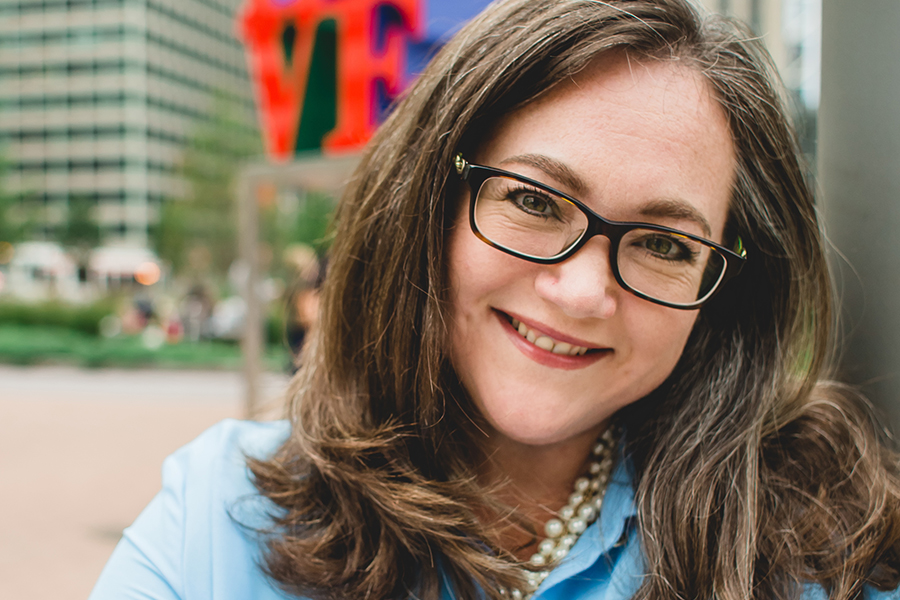Tiffany Palmer and Henry Sias, two openly LGBTQ candidates for 10-year judgeships on Philadelphia Common Pleas Court, say they’re grateful to receive favorable ratings from the Philadelphia Bar Association.
The bar association’s Commission on Judicial Selection and Retention announced the ratings on May 8.
Palmer, 47, received a “highly recommended” rating, the only woman to get the coveted rating this year. She’s practiced law for 20 years, primarily in the field of LGBTQ civil rights.
“I’m deeply honored to have received the highest rating from the Philadelphia Bar Association,” Palmer told PGN. “I’ve spent my career fighting for social justice and hope to bring that perspective to the bench. I’m grateful for the opportunity I’ve had in my 20-year career to work on groundbreaking LGBT civil-rights cases. I’ve had the privilege to argue before the Pennsylvania Supreme Court and have worked on numerous appellate cases that have shaped Pennsylvania law. Those experiences likely contributed to the rating — as well as my community service. I’m currently a Girl Scout leader and I started a non-profit to raise money for my daughter’s Philadelphia public school.”
Between 2000-03, Palmer was employed as legal director of the Center for Lesbian and Gay Civil Rights. The center now operates as Mazzoni Legal Services. Palmer lives in East Mount Airy with her wife Lee Carpenter, a law professor at Temple’s Beasley School of Law, and their daughter Ellie. The couple has been together for 19 years. In 2003, Palmer co-founded the law firm Jerner & Palmer, where she currently practices law.
If elected, Palmer said she’d like to serve on Philadelphia Family Court, a division of Philadelphia Common Pleas Court.
Sias, 42, a trans man and civil-rights attorney based in South Philadelphia, received a “recommended” rating. “This rating means a lot to me,” Sias told PGN. “Even a few decades ago, the very idea of somebody openly-trans being taken seriously as a judicial candidate would be completely unrealistic. So this rating shows how far we’ve come.”
Henry Sias
Sias is a 2005 graduate of Yale Law School and served as a law clerk for several well-known judges, including Pennsylvania Supreme Court Judge Jane Cutler Greenspan. Between 2007-08, he was employed at the Center City law firm Blank Rome, specializing in white-collar criminal law, general commercial litigation, mass torts and political asylum. Sias and his wife Carey Ann Sias own a home in the Italian Market area.
In August 2011, Sias cofounded Philadelphia Lawyers for Social Equity, a nonprofit legal-aid organization informally known as the Expungement Project. The project has performed thousands of free criminal expungements for low-income Philadelphians, including within the LGBTQ community. Sias also serves on the Pennsylvania Commission on LGBTQ Affairs, created by Gov. Tom Wolf last year.
Sias said his extensive legal background probably helped him get the “recommended” rating.
“I think [the commission members] looked at my experience in the courts,” he said. “I think they looked at my experience with the state Post Conviction Relief Act, which is one of the main tools we have to ensure conviction integrity. They talked to a lot of people who know me well. I have many good mentors in the city. I’m lucky that way.”
Sias also expressed optimism about the upcoming primary election. “I feel good about our campaign. We’ve received support from people in 26 states and the District of Columbia. It just shows the hunger that’s out there for positive images of transgender men. And in Philadelphia I have been treated very fairly and gotten support from a lot of organizations that are helping me to achieve victory.”
Both candidates are running as Democrats in the May 21 primary. A primary win would ensure a follow-up victory in the Nov. 5 general election because the city is overwhelmingly Democratic.
Currently, there are six vacancies on the 93-member court, which rules on civil, criminal and family matters. Twenty-five candidates are vying to fill those vacancies. The bar association gave “highly recommended” ratings to four candidates and “recommended” ratings to 15 candidates. Six candidates received “not recommended” ratings.
The bar association, which has about 12,000 members, is seeking volunteers to distribute cards containing its judicial-candidate ratings at polling places during the May 21 primary, according to its website.
